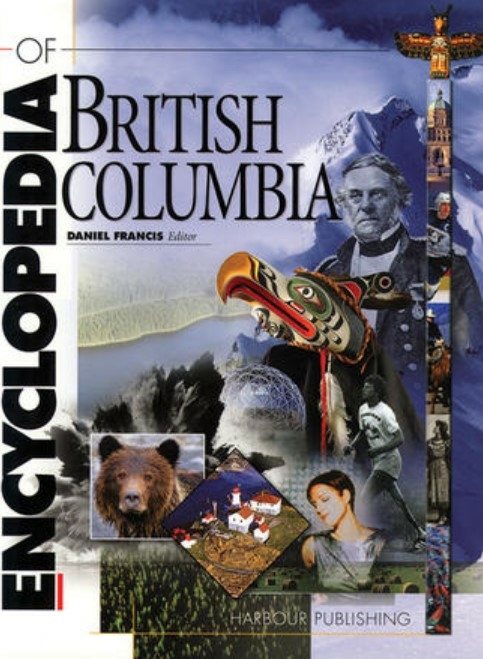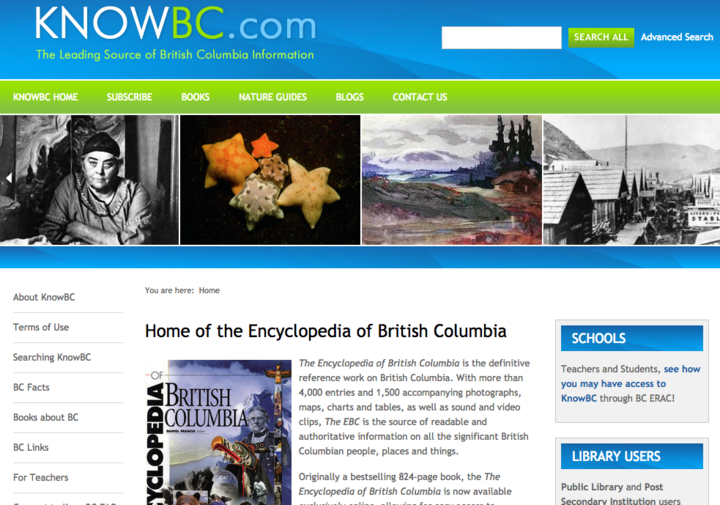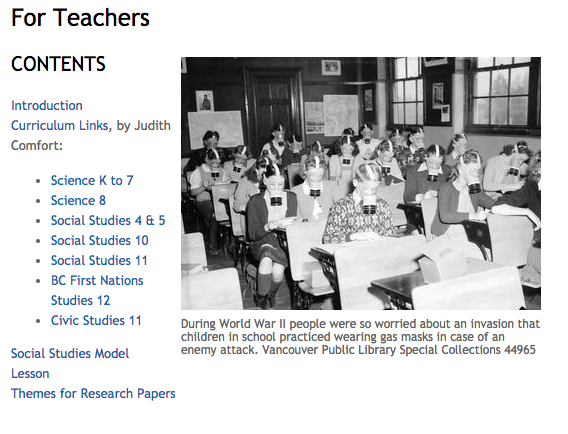How the Encyclopedia of BC uses its CMS to generate ongoing revenue from a 17-year-old title
Digital revenue models for book publishers abound in theory, but when it comes to the reality of monetizing content online, many publishers have struggled to find a solution that actually works.
For Harbour Publishing, an eZ Publish content management system paired with a scalable subscription sales model turned its digitized book content into an ongoing revenue stream.
The Challenge -- Updating and monetizing the digital version of the Encyclopedia of BC
When it originally launched in 1999, Harbour Publishing’s award-winning Encyclopedia of BC was a printed book and a companion CD-ROM. At the time, the production and sale of digital content was still in its infancy. But as CD-ROMs quickly gave way to web publishing, Harbour Publishing found itself in need of a more practical digital format that would allow it to update its content, add to it, and sell and distribute it to online readers more effectively.
In 2001, Harbour brought Mugo on board to build a digital version of the Encyclopedia’s content -- known as KnowBC -- that would enable it to grow both its content and its revenue. Together, we developed a monetization model for KnowBC that has worked for 15 years and counting: generating ongoing revenue for Harbour Publishing and allowing it to expand its platform to include additional titles.
The Solution -- A flexible platform and a scalable sales model
While the original print version of the Encyclopedia is no longer available, all of the content (which is continuously being updated) is accessible online, via paid subscription, along with an additional eight books consisting of similar education and reference-style content.
Mugo migrated all of the Encyclopedia of BC’s content into eZ Publish -- 4,000 text entries in addition to audio and video clips, all of which is searchable and easily accessible via paid institutional subscription.
The site has enabled Harbour Publishing to create an ever-expanding multimedia knowledge base that has proved invaluable for researchers and students. It’s also been able to update content as needed, and expand the content offerings to keep readers coming back for more. For example, additional sections were created with specific resources for teachers and students. “Every time we publish a book that’s appropriate to the site, we add it,” says Howard White, publisher at Harbour Publishing.
At a time when Canadian educational publishers are experiencing dwindling revenue from copyright access payments due to new copyright legislation that has left the notion of fair dealing in education open to interpretation, KnowBC offers a replicable model of revenue generation. “We’ve always had the content behind a subscription wall,” says White. “We found that, because of the nature of the material, selling subscriptions to institutions like libraries, schools, and universities was the way to go. They are happy to subscribe to this unique reference material about BC that is up-to-date and ever expanding.”
Harbour sells digital subscriptions to public schools, public libraries, and institutional libraries via digital asset purchasing companies like ERAD. “Rather than having to sell to every school, they sell to the consortium,” says Doug Plant, Mugo’s Client Relations Manager. “The business model is efficient and very effective for a small book publisher.”
Schools and libraries with subscriptions get an account with access flexibility that enables logins both from on-site and off-site locations. “We built out support for different user account validation systems,” Plant says. “So if a user is travelling, they can get in automatically through their school district portal, or they can log in directly with a username and password.”
The system supports all the standard validation models including direct log-in, referring URL, white-listed IP addresses and subnets, as well as matching library card numbers. The solution includes detailed logging and debugging options.
The Result -- Thousands of subscribers and ongoing revenue
Today, KnowBC hosts nine volumes of content -- the well-known Encyclopedia of BC as well as reference books like Marine Life of the Pacific Northwest, The Encyclopedia of Raincoast Place Names, and Pacific Seaweeds, its most recent addition.
“What the platform allowed for and proved is that there’s a viable way to digitally deliver books,” Plant says. “Publishers’ books nowadays are basically already digital. Putting the content into a CMS and publishing it on a website is simple, and it allows them to maintain and enhance their content. It’s really expensive to reprint the Encyclopedia, but it’s nothing to add and update articles in the CMS. And if they ever do decide to reprint, they could go to the website to get up-to-date content.”
More than 2,200 subscribers in B.C. have purchased two- or three-year subscriptions to KnowBC’s content, and thousands more have access via their school or library. And for Harbour Publishing, the site has facilitated continuous expansion of an award-winning brand and valuable revenue generator within the boundaries of a small book publisher’s resources.
“The CMS is very robust and the site has been very flexible; we’re able to do routine maintenance and additions of content in our own office,” White says. “That’s essential for us and it works quite well. We’re quite satisfied with the CMS, the customization, and the cost. Working with Mugo has been excellent.”





